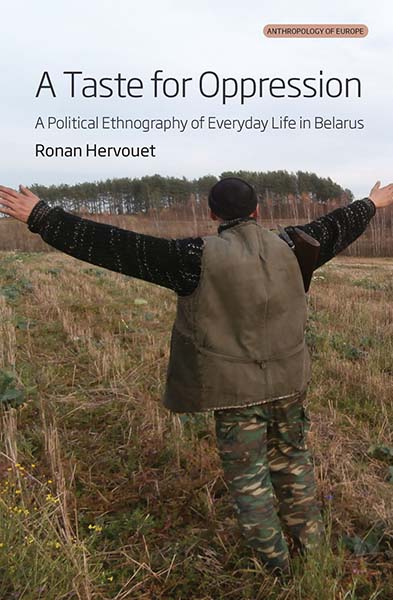“as a whole, Hervouet’s work gives valuable information on life in kolkhozes, on the attitudes of villagers and their possibilities for action. It informs the reader not only about Belarus in present times but opens a way to understand better how collective farming could work in Soviet times in Belarus and also in other places…[It] offers an interesting contribution to research on the post-socialist transition, also bringing the theory of moral economy to a post-Soviet context.” • Baltic Worlds
“I think this easy-to-read book, translated by Dean Frances from French, will greatly appeal to scholars interested in the cultural geography of Eastern Europe and will be an excellent starting point for non-specialists who might discover the unknown facets of the overlooked post-Soviet nation, the Republic of Belarus.” • Cultural Geographies
“The book has more than one level. Political scientists will find that classical sociology offers help to explain those phenomena that are not easy to comprehend from a pure political standpoint. Those who are unfamiliar with everyday life in rural Belarus will find plenty of information on the subject. The book will help generations of scholars to study an important period of Belarusian post-Soviet history.” • Slavic Review
“These empirically rich and interesting materials reflect a serious and long-term engagement with the author’s field sites and can make important interventions in debates about the social foundations of authoritarian rule.” • Jessica Pisano, The New School for Social Research.
“The study is very original and interesting as it fills an important gap in our understanding of existing authoritarian regimes.” • Elisabeth Anstett, CNRS (Centre National de la Recherche Scientifique), Marseille
Belarus has emerged from communism in a unique manner as an authoritarian regime. The author, who has lived in Belarus for several years, highlights several mechanisms of tyranny, beyond the regime’s ability to control and repress, which should not be underestimated. The book immerses the reader in the depths of the Belarusian countryside, among the kolkhozes and rural communities at the heart of this authoritarian regime under Alexander Lukashenko, and offers vivid descriptions of the everyday life of Belarusians. It sheds light on the reasons why part of the population supports Lukashenko and takes a fresh look at the functioning of what has been called 'the last dictatorship in Europe'.
Ronan Hervouet is Professor of sociology at the University of Bordeaux and a member of the Centre Émile Durkheim. He has previously published a book on Belarus, entitled Datcha Blues. Existences ordinaires et dictature en Biélorussie (Belin, 2009).
LC: HN530.7.A8 H47 2021
BISAC: SOC002010 SOCIAL SCIENCE/Anthropology/Cultural & Social; POL035000 POLITICAL SCIENCE/Political Freedom & Security/General; SOC026020 SOCIAL SCIENCE/Sociology/Rural


